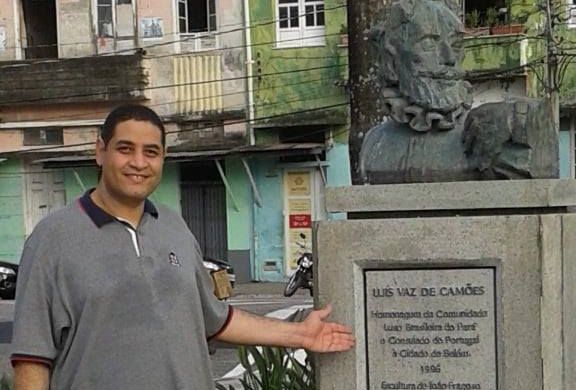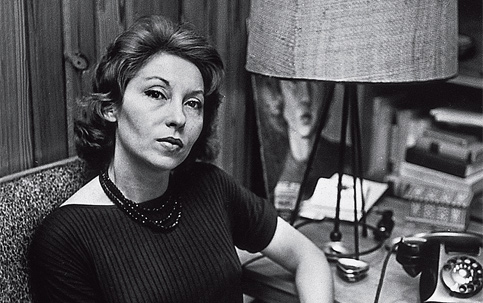São Paulo – The novel ‘The Hour of the Star’, by Brazilian writer Clarice Lispector, was published in Arabic at the end of June in Egypt. Translated by the researcher and professor Maged ElGebaly and released by publishing house Kotob Khan, the book is in bookstores in major cities of Egypt and other Arab countries, such as the United Arab Emirates and Lebanon.
The novel tells the story of Macabéa, a typist from the state of Alagoas, who moves to Rio de Janeiro. In the book, her daily life, dreams and conflicts are recounted by a fictitious writer named Rodrigo. “I’m alone in the world and don’t believe anyone, they all lie, even in lovemaking, I don’t think a human being talks to another, the truth only comes to me when I’m by myself,” says an excerpt.

Clarice Lispector was born in Ukraine but came to Brazil still a toddler and was naturalized as a Brazilian. She died at 56 years old, in 1977, and left one of the most beloved body of works of Brazilian literature. She’s considered one of the most important writers of the twentieth century. “The Hour of the Star” is one of her most trnslated works.
The translator of the book into Arabic, Maged ElGebaly, is the coordinator of the Portuguese Department at Aswan University. The book is his first translation from Portuguese to Arabic to be published. A major in Arabic and Spanish, he was the translator of Egypt’s Ministry of Culture, has a master’s degree in Linguistics by the Caro and Cuervo Institute and doctor’s degrees in Translation, at Ain Sham University, and Languages, at the University of São Paulo (USP).
ElGebaly says that his first contact with the work of Clarice Lispector was in 2003, when he read “Family Ties”, during Portuguese courses to foreigners at Brazil-Colombia Culture House. When he began his doctorate at USP, he then was introduced to the classic novels of the Portuguese literature.
“Among these novels, the feminine perspective, the intimate, psychological and philosophical writing by Clarice Lispector in “The Hour of the Star” fascinated me. It’s one of those books that you intend to read only the first page and just can’t put the book down until the end. The character from Northeast Brazil Macabéa conversed with the passive resistance of many Egyptian and Arab young women that currently move from the villages and towns to the large cities to study and work,” says ElGebaly.
From this, the Egyptian began to study Clarice’s work to translate “The Hour of the Star.” In 2015, publishing house Kotob Khan bought the rights of Clarice’s works to Arabic and contacted ElGebaly, the coordinator of the only Portuguese bachelor’s degree in the Middle East. The translation was concluded in 2016.
“It took hours and hours of conversations with the work’s textuality to be able to decipher the ‘epiphany’ in the dialogues taken by the characters’ voices, with the narration occurring in two levels: by Rodrigo and by Macabéa,” said ElGebaly to ANBA. According to him, it was crucial to decipher the voices in the narration and explain and balance out the silences and the implicit with counterparts in Arabic as for the text to not be truncated or incomprehensible to the reader.

ElGebaly had the support of friends to decipher some excerpts, especially from Khalid Tailche, an Iraqi professor who has a doctor’s degree at USP. “It was necessary, in decoding the work in Arabic, to build the Brazilian sociocultural entries and the philosophical references of each character in Arabic,” says the translator. Clarice’s deep insight and metaphorical language, however, fused well with literary Arabic, according to ElGebaly.
Besides this work, the Egyptian translated into Arabic “Tale of a Certain Orient,” by Brazilian writer Milton Hatoum, as part of his doctoral thesis at USP, but the work was never published. However, he has taken part in the organization of books on Portuguese literature and has written and published chapters on Literature and Linguistics books. ElGebaly plans to continue to work with the translation of Portuguese works into Arabic.
He’s in Brazil to update the Portuguese literature researches. He attended the International Symposium of Literature and Press at the Maranhão Federal University, in which he presented, alongside Liliane Correa, a research on the diary and press coverage of the visit of Brazilian emperor Dom Pedro II to Egypt. ElGebaly also attended other activities in Maranhão, Pará, Minas Gerais and Rio Grande do Sul, all focused on cultural relations and Arab and Brazilian literature. He also visited the state of Santa Catarina.
Translated by Sérgio Kakitani




